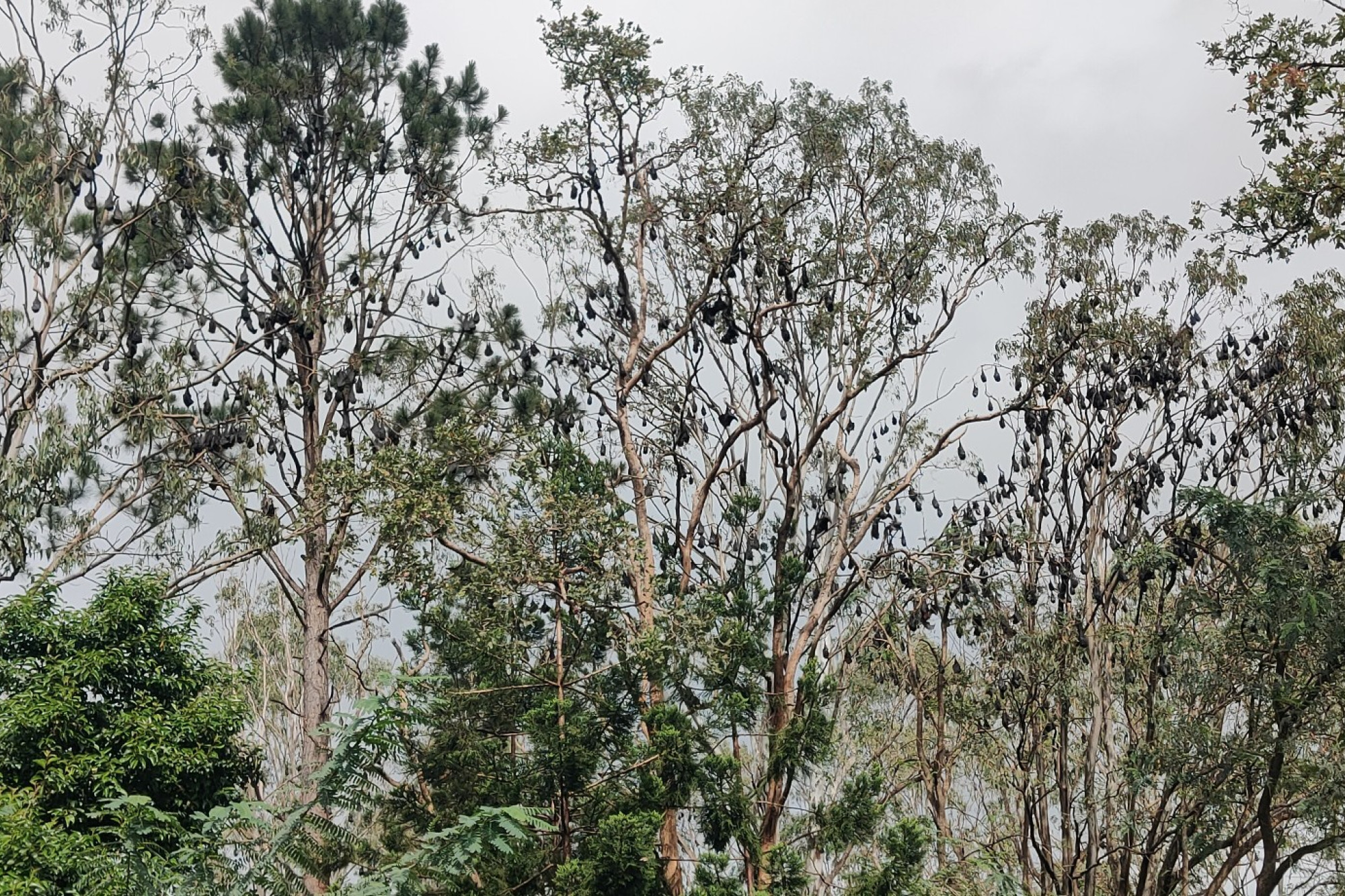News
2 May, 2025
Driving locals batty
Somerset Council refuses to move on a massive flying fox roost on private property near Sandy Creek and South Street in Esk, despite residents calling for action, expressing health concerns, and disturbance to liveability.

Sandy Creek resident Lorna Peters estimates nearly 1,000 flying foxes are residing on the property across her house and has asked Council several times to move them on.
“The smell that comes from where they are is absolutely terrible and the amount of noise is just atrocious,” she said. “None of us can open our windows during the day because the smell from their trees is so overpowering and I can’t imagine it’s good for anyone’s health to be inhaling that stench all the time. A lot of us are also on tank water, so it’s a real hazard having that much poo flying over us every day.”
Ms. Peters, who has lived in the area for two years, added how the increasing amount of faeces is damaging people’s property, including solar panels, cars, and patios. She claims not to be able to hold events such as barbecues due to the smell, noise, and faeces.
“I don’t think Council should allow that many to be living in a residential area,” she said. “All I want them to do is help move the roost on, to an area where they won’t be a disturbance.”
Ms. Peters also expressed concern over the local wildlife, saying the roost has destroyed the gumtrees in the area, resulting in the koala population moving further down the creek.
As a result of the increasing disturbance caused by the roost, Ms. Peters started a petition to present to Council, which allegedly already has 60 signatures from Sandy Creek and South Street residents.
Somerset Regional Council CEO, Andrew Johnson, confirmed Council is aware of the large roost, adding they received a petition about the issue in January 2024. “Council has affirmed its position on this matter – we will not undertake management actions to disperse flying-fox roosts on private property as it may simply disperse the roost to other private properties or public spaces,” he said.
“The community has shared its concerns with Council since the roost relocated from the northern side of the Esk township. We are continuing periodic monitoring on the South Street roost for any changes or movement, however, Council is limited in its capacity to control the wildlife, as the roost is primarily located on private land.”
Mr. Johnson added Council has met landholders to “discuss their options and provided direction” to contact the relevant State Government departments, as the State Government is the primary authority on native species legislative protection under the Nature Conservation Act 1992.
“From a public health perspective, the State advises in almost all circumstances there is no reason to be alarmed if a colony of flying-foxes moves in nearby,” he said. “Notwithstanding, members of the public should not handle bats. Flying foxes are protected wild animals and it is difficult to predict when and where they will move.”
For more information on living near flying-foxes, visit: Qld Government - Flying Foxes.

